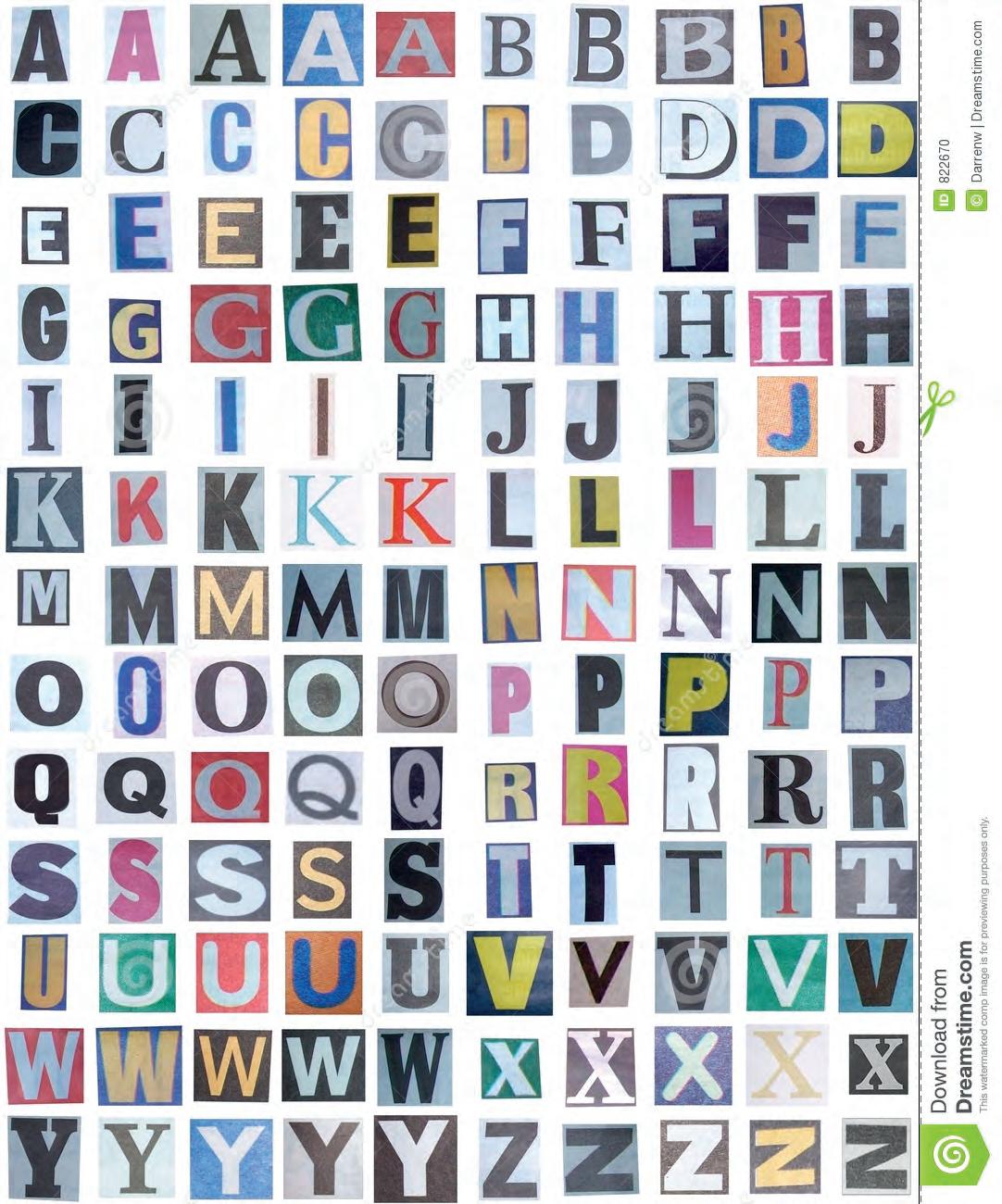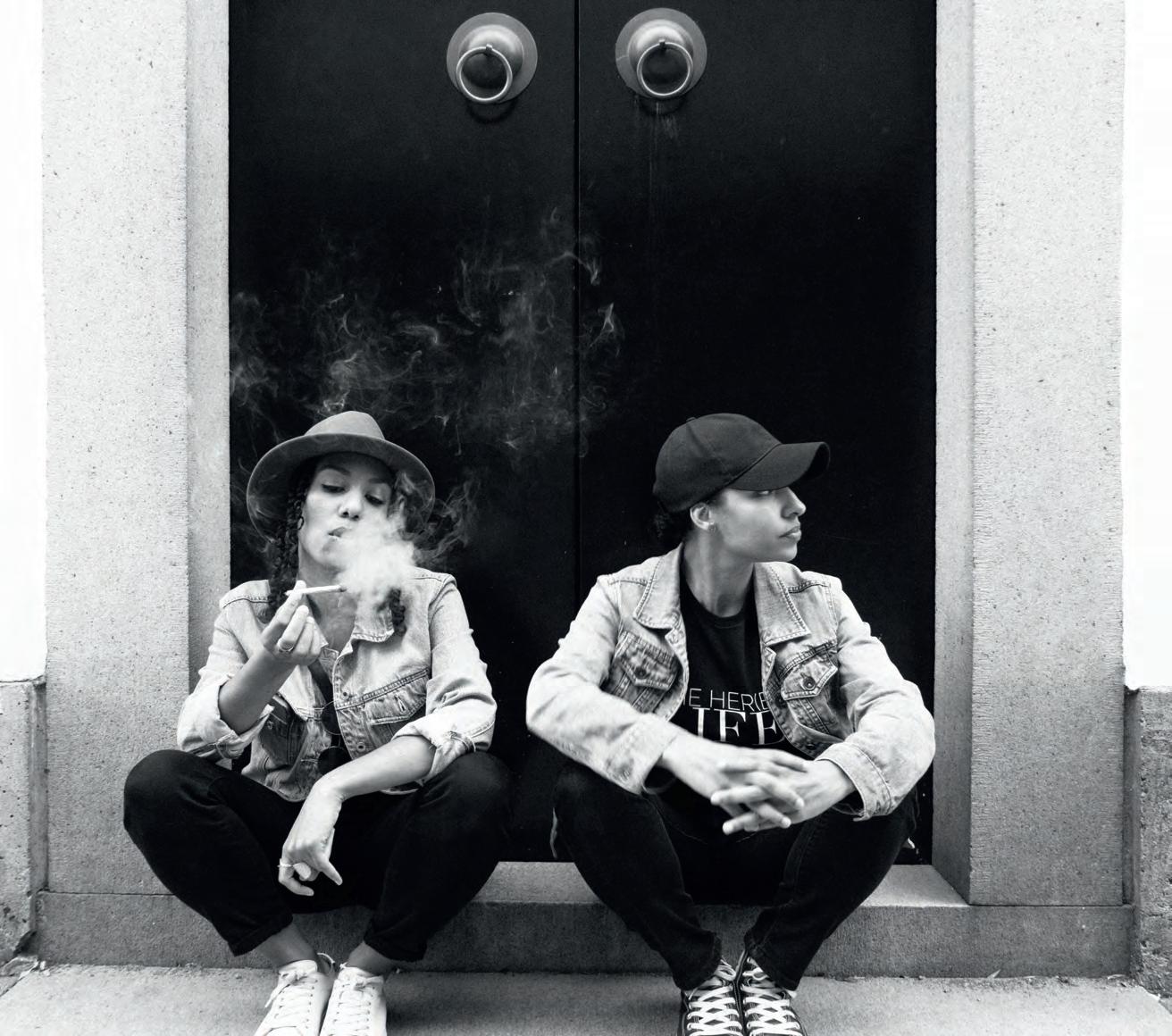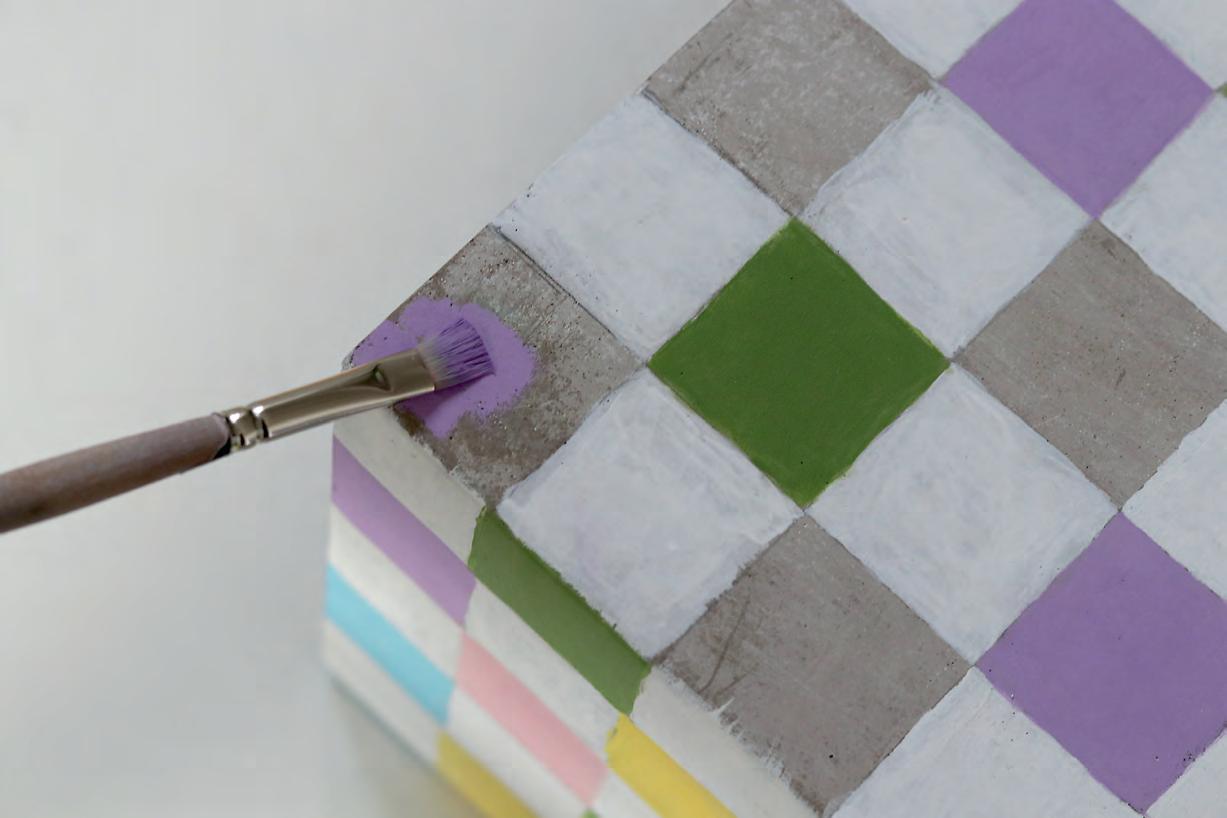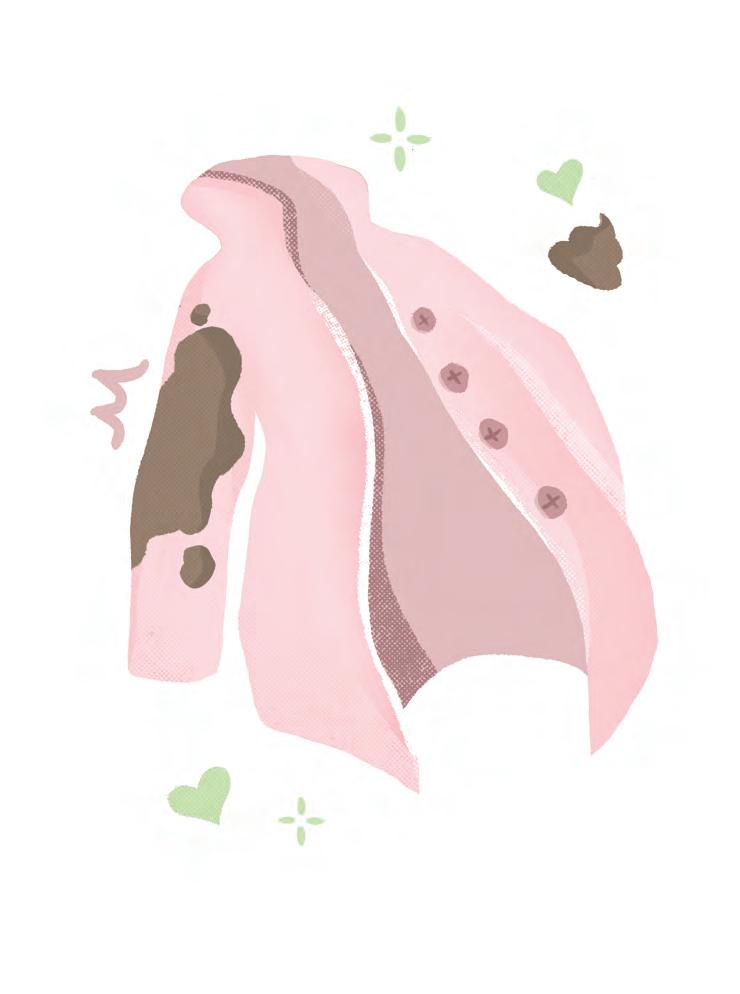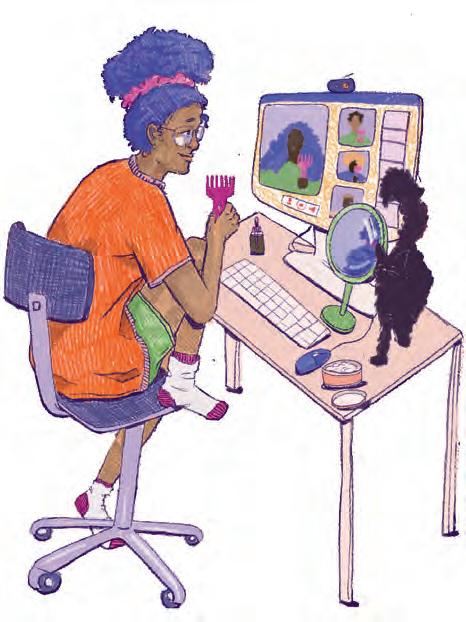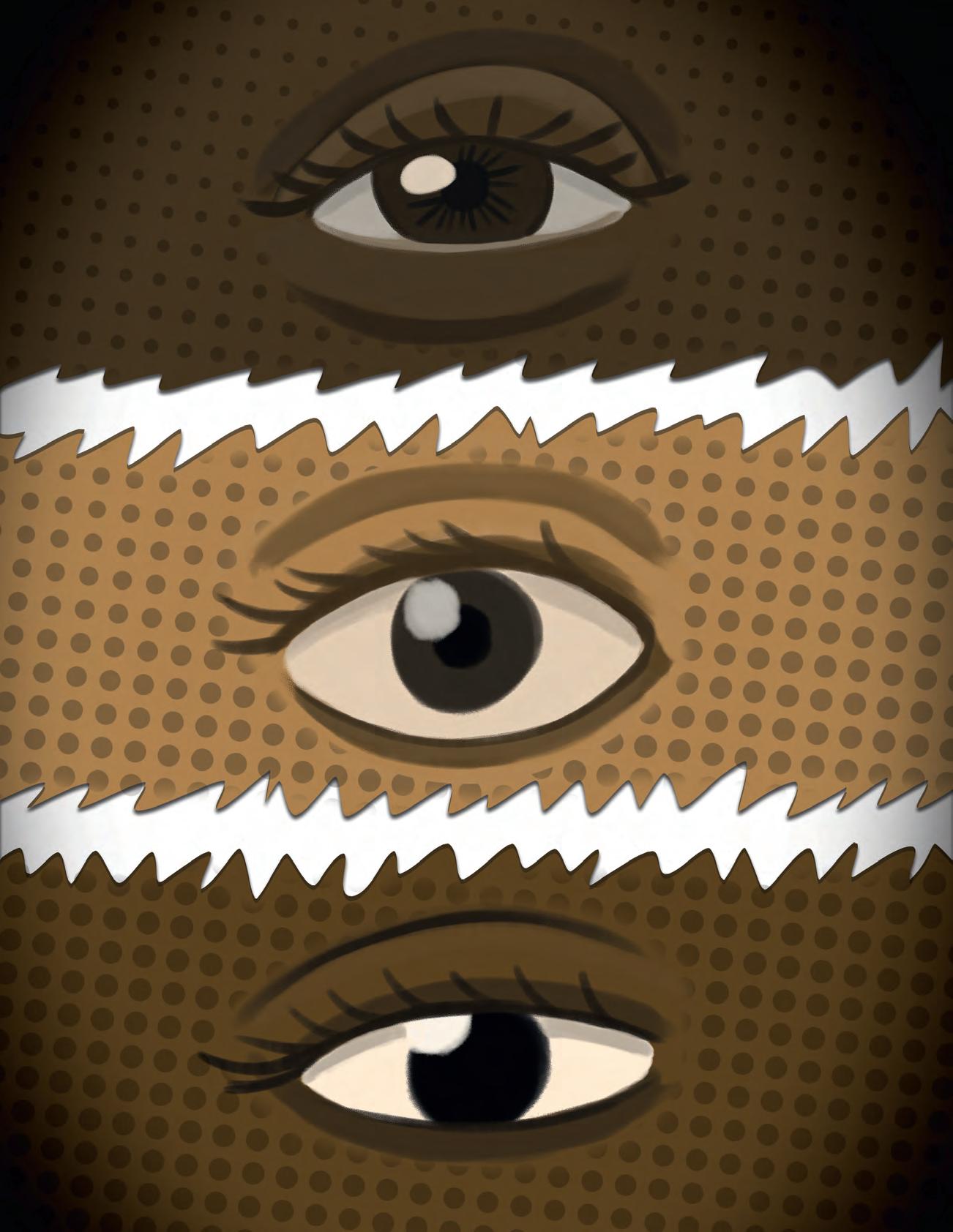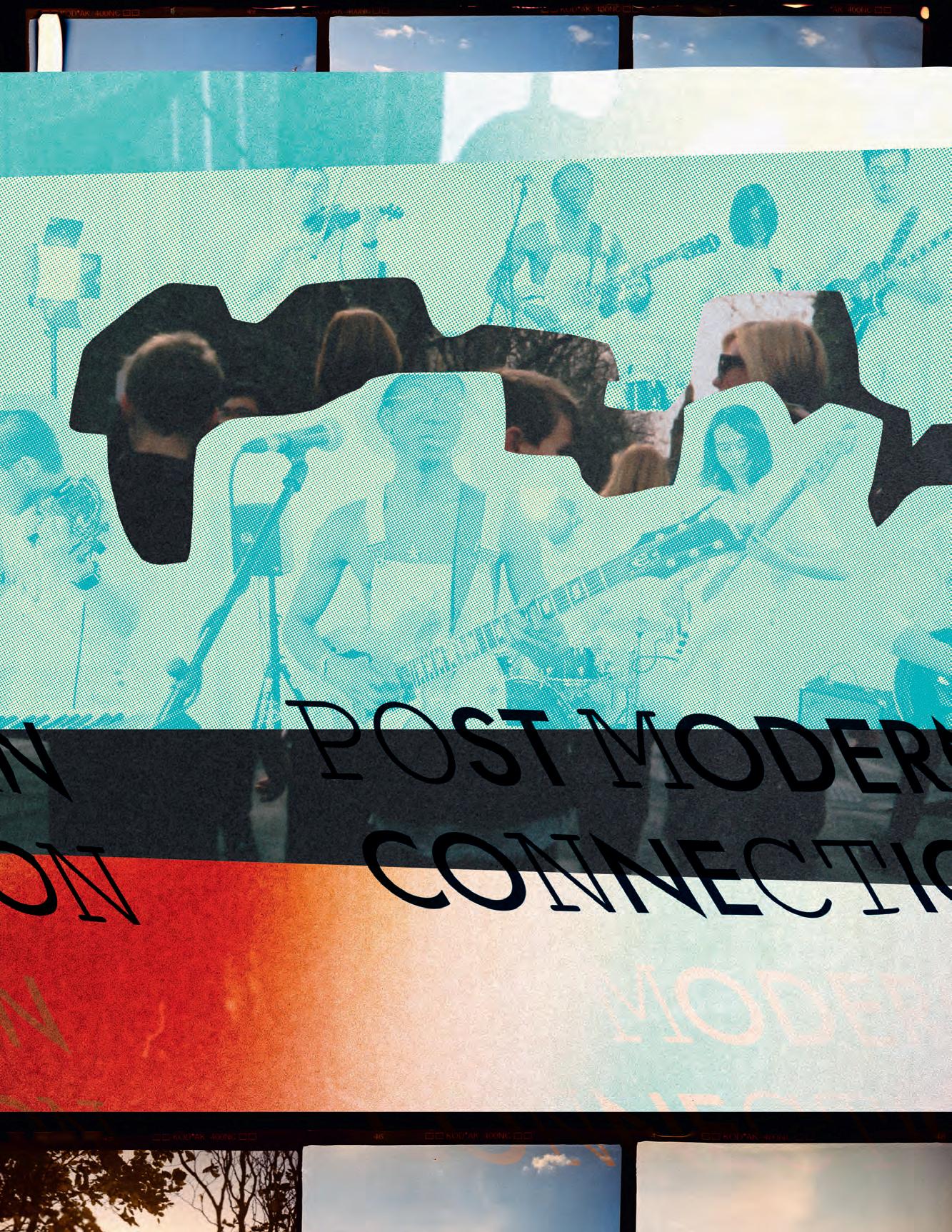
8 minute read
Love, in Interesting Times
A look at the relationships that have bloomed in quarantine and how romance has changed during the pandemic
JOSS ARNOTT Staff Writer
Advertisement
GERALDINE YARIS Illustrator
Under the Wave off Kanagawa by Hokusai Katsushika is perhaps the most famous piece of Japanese art that exists in the world today. It depicts a great and primal ocean wave, towering over a handful of fishermen. Huddled together in feeble boats, the fishermen are helpless against the sheer power of nature. All they can do is hold fast as The Great Wave comes crashing down upon them.
When the COVID-19 pandemic came crashing down, people found themselves suddenly divided. Some were lucky enough to be with loved ones; others were alone when the words “new normal” were plastered across their feeds. Relationships took on new meaning as humanity took shelter from a storm we’d never seen coming.
North Vancouver based therapist Stephanie Gilson notes that quarantining has brought some couples closer together but also broken many apart. “They realize they can't be together,” said Gilson, explaining how being around a partner constantly can cause friction, especially when the couple isn't used to it. “They don't have that, ‘go to work, come home, bitch about work, go to bed’ routine,” explained Gilson. Where some relationships have faltered under the strain of isolation, others become forged in its crucible. Gilson describes two couples that got together just as the pandemic began and who are now engaged. According to Gilson, the lack of a traditional honeymoon phase has helped these couples grow closer faster. “We start to really get to know each other and get that intimate connection together.”
When it comes to love in the time of COVID-19, no single trend or response has occurred. Perhaps in a decade, further research will be able to delineate more answers, but for now, there aren't any. In the eleven months since this sordid song and dance began, there has been no wave of divorces, no baby booms; there have only been people trying to make it through the storm. And as different as people are from each other, so have their experiences differed as we’ve each navigated this crisis in our own way. Dawson Heistad, a fourth-year student at Capilano University (CapU), was one of many who found themselves in a new relationship as the pandemic began—something Heistad never anticipated. Instead of attending class, Heistad and his girlfriend—an exchange student—were free to spend their time together. “That led to a pretty special understanding,” said Heistad. But as more strict restrictions were introduced and most countries closed their borders, things grew tense for the couple. “The question became whether or not she’d be able to get back.” While Heistad’s partner had planned on staying in Vancouver for six months, she left after three. “The initial lockdown helped us get to know each other, but later the same lockdown actually pulled us apart.”
Heistad knew the relationship most likely wasn't permanent, but endings hurt all the same. “There was a point of sadness, but I was glad I had the chance to experience it. That was a huge point of growth.” When Hesitad’s partner left for home in Germany, he found himself in the same situation as many singles across the world—alone.
When classes resumed in the fall, Heistad felt increasingly isolated as friends and roommates became entrenched in school work. “That was a point where I started feeling lonely. The isolation definitely adds to that.” Heistad admitted that his feelings of loneliness often drive him to popular online dating apps like Tinder, OKCupid and Bumble. “When I use Tinder, I end up treating it like a game. I go on with better intentions, then run out of steam,” Heistad explained. For Heistad, the process of rating people on appearance tends to make him feel empty and uninterested in messaging those he matches with. “Anyone that I’ve met and then built a relationship within Vancouver has been through being introduced by other people,” said Heistad. “I’ve never found much of anything on Tinder.”
Lockdown or no, Tinder is as flawed as it’s always been. Yet, Tinder was used on Mar. 29, 2020, more than any other time in the app’s history. As the pandemic dragged on, Tinder added video chat options and
unlocked the ability to swipe around the world for everyone. Sadly, the inherently human problems associated with online dating can't be solved with a quick patch or update.
Jasmine Wood was one of many who re-downloaded Tinder when the first wave struck. Hoping to find the app populated by those seeking a genuine connection, Wood was disappointed and deleted the app by the end of a single day of use. “There was this one guy who was just like ‘you know, I miss women…’ Like what do you want me to say to that?” Wood said, exasperated. “I can't relate, I don't care, suck it up! Like we’re all here together in this pandemic, I just had no patience. I gave up.”
Vancouver Island native Naomi Evers moved to the greater Vancouver area for school a few years ago. “In the time that I’ve lived here, all the people I’ve dated have either been from Tinder or school,” said Evers, discussing how even at work, she's found it hard to meet people. She said that if it wasn't for school, she’d probably be using Tinder exclusively. Even though she finds it “kinda lame,” Evers faithfully redownloaded Tinder when the pandemic began. “It was fun, but I never took it very seriously, and then I deleted it,” said Evers. “Nothing ever comes from it. You can never tell what someone’s like when you see them on Tinder.” Explaining how her dates inevitably end up being incompatible with her when they meet up in person. “I just don't feel like wasting a first date, especially since it’s Covid,” she said.
Instead of dating, Evers is focusing on strengthening the connections she has in her life already. “You realize how much it helps to have that support system that is just your friends.”
Now more than ever, we’re asking ourselves, “Who are you willing to take into your circle?” Gilson says it’s an important question she asks her clients regularly. While Gilson admits she has fallen out of touch with some friends, the pandemic has brought her much closer with others. “If I'm going to bring somebody to that circle that’s so important to me, that gives me my life, my support, my emotional well being, my happiness, my laughter, my…everything. If I’m bringing somebody into that, they better be fucking amazing.”
Sometimes, all we have is ourselves. “You’ll come to a point where you think, ‘oh, I’ve been alone for quite a while, I feel kind of lonely,’” explains Heistad, who isn't alone in his thinking. Studies have found that feelings of increased anxiety and depression have become common during the pandemic.

As a therapist, Gilson has noticed the pandemic has been hard for some men especially. This, she believes, is thanks to antiquated social pressures like toxic masculinity. “Be a man, suck it up, don't cry.Men are starved for real connection, and I think that has heightened in this pandemic.” Gilson stressed the importance of abandoning these masculine expectations that all too often perpetuate harmful ideals, and instead, reaching out to friends or loved ones.
“It’s hard right now, It’s really hard,” said Gilson, who has noticed a growing sense of loneliness amongst single people. “There’s a grief to [loneliness],” said Gilson. What’s important, the therapist argues, is talking about our feelings with those important to us. “You take that feeling of being alone, the sadness and create something. When we can talk about it, we don't feel so alone.”
Another key tool, according to Gilson, is positive self-talk. The idea is to talk yourself into things that are good for you.By creating an inner dialogue that builds you up, you stop tearing yourself down. “I joked with my friend,” Gilson said with a chuckle. “What are dishes? What are dishes even?! Why do them? What the hell is the point?!” Despite her reservations, she still does the dishes because having a clean home makes her feel better. It’s really that simple. “Just focus on the things that make you feel good,” said Gilson. “Even if it seems stupid—do it. Because it makes you feel like you’re valuing yourself.”
Jason Arkell-Boles, who has ironically had what he calls his healthiest mental health year ever, is the pinnacle of positive self-talk. “Not pushing myself to get into social interaction and relationships has helped me a lot,” said Arkell-Boles. “I’ve gotten over Tinder, and now I’m really into video games.” The pandemic has helped Arkell-Boles slow down, allowing him to rediscover his love of being a dweeb, all the while slacking off in Zoom classes and playing Pokémon. “I’ve learnt how to be lazy, to be happy with being lazy,” said Arkell-Boles. “That’s given me insight into what I need to be happy, on the most basic level.”
In a year where the world is falling apart around us and will inevitably continue to do so, it’s important to love ourselves. It’s important, imperative even, that we cling to the things we can. That we take care of not only ourselves but those closest to us—even if they can’t be physically close right now.
There’s no right way to deal with a crisis and no right way to live life. All we can do, all anyone can do, is their best—and that's ok. It’s ok if the only date you have this valentine’s day is yourself. So maybe don't doom swipe through Tinder, try running a bath, maybe listen to something soothing and remember; that while The Great Wave may be bearing down upon us now, all storms eventually pass.

